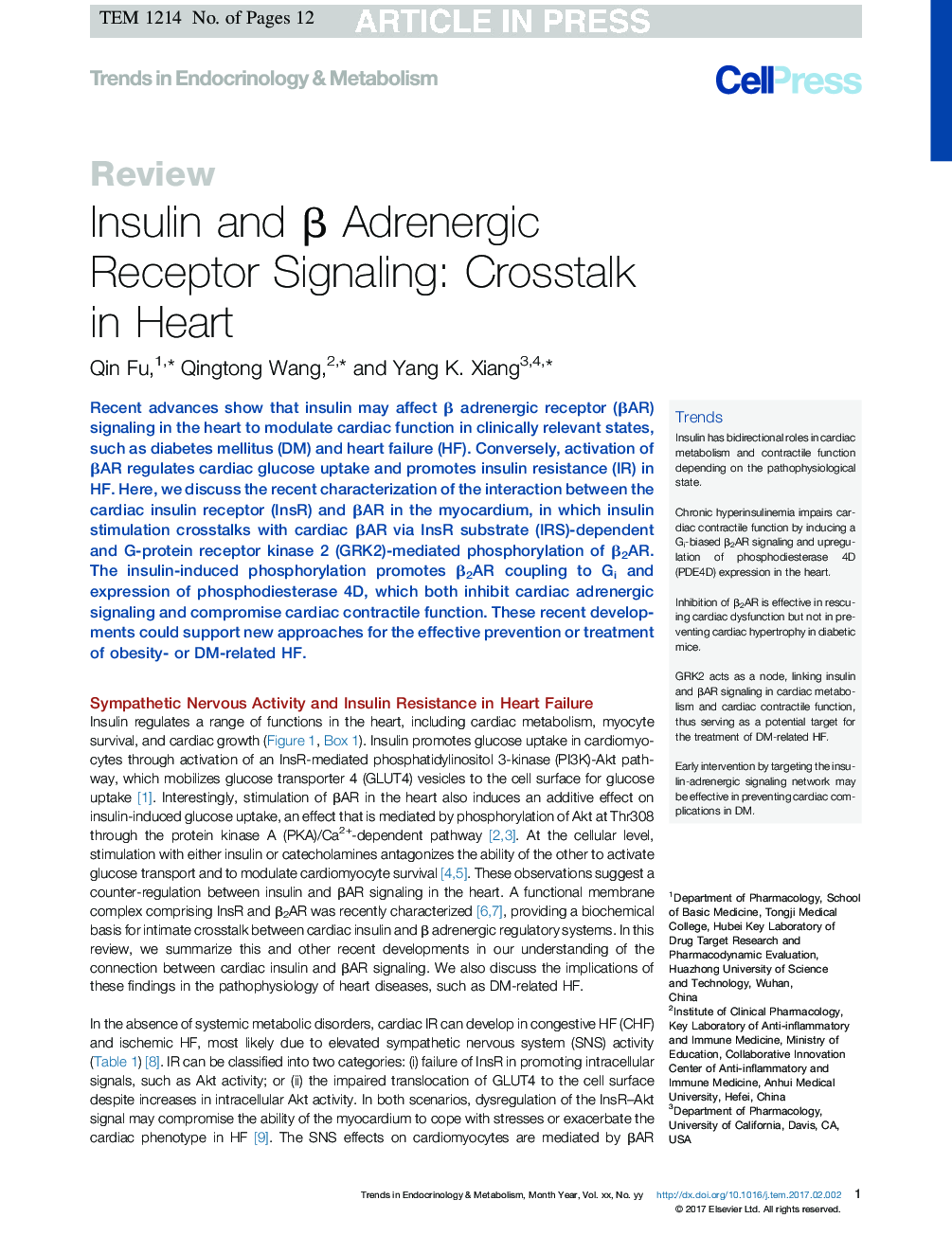| Article ID | Journal | Published Year | Pages | File Type |
|---|---|---|---|---|
| 5588730 | Trends in Endocrinology & Metabolism | 2017 | 12 Pages |
Abstract
Recent advances show that insulin may affect β adrenergic receptor (βAR) signaling in the heart to modulate cardiac function in clinically relevant states, such as diabetes mellitus (DM) and heart failure (HF). Conversely, activation of βAR regulates cardiac glucose uptake and promotes insulin resistance (IR) in HF. Here, we discuss the recent characterization of the interaction between the cardiac insulin receptor (InsR) and βAR in the myocardium, in which insulin stimulation crosstalks with cardiac βAR via InsR substrate (IRS)-dependent and G-protein receptor kinase 2 (GRK2)-mediated phosphorylation of β2AR. The insulin-induced phosphorylation promotes β2AR coupling to Gi and expression of phosphodiesterase 4D, which both inhibit cardiac adrenergic signaling and compromise cardiac contractile function. These recent developments could support new approaches for the effective prevention or treatment of obesity- or DM-related HF.
Related Topics
Life Sciences
Biochemistry, Genetics and Molecular Biology
Endocrinology
Authors
Qin Fu, Qingtong Wang, Yang K. Xiang,
